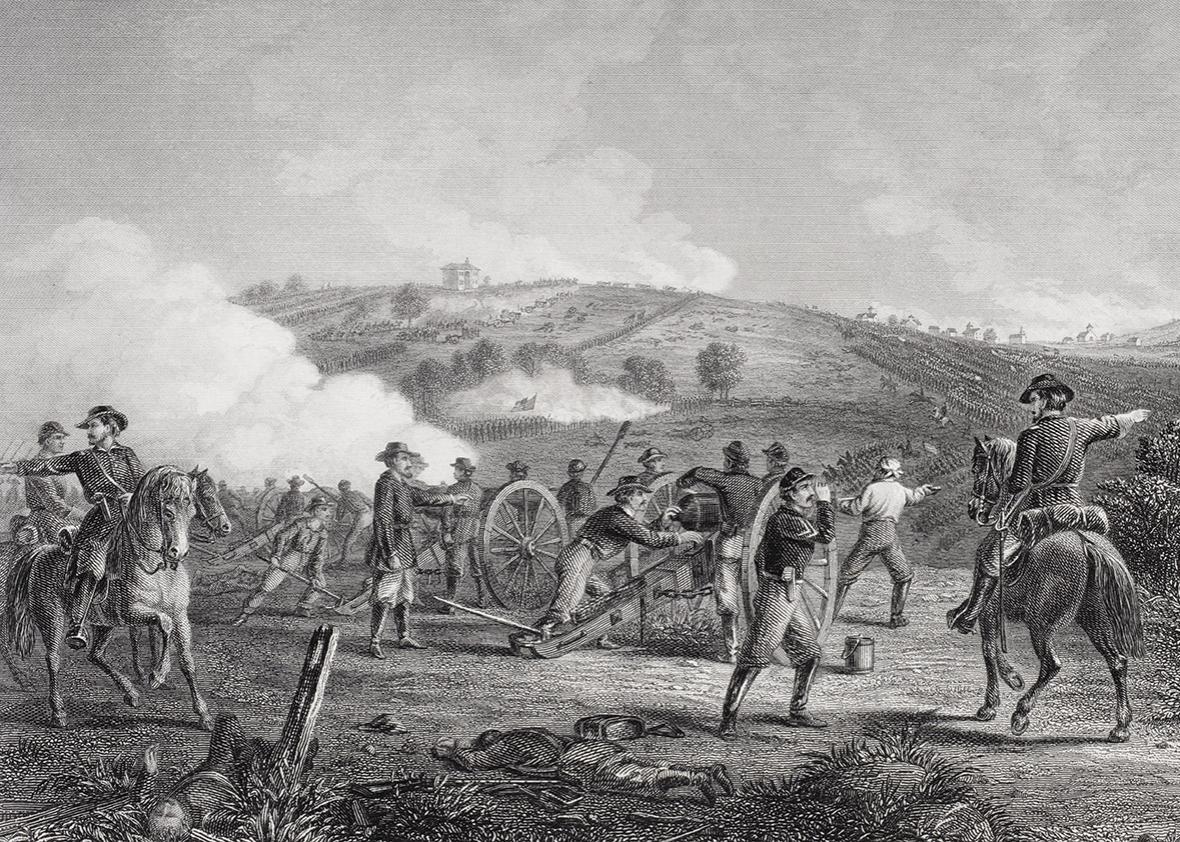Here’s one line of thought I found momentarily comforting this morning: America has seen bad times before; unstable times. We’ve had incompetent presidents, racist presidents, corrupt and underqualified presidents. We’ve been through wars, depressions, and McCarthyism. The election of Donald Trump makes me want to lean back into the thought that we, as a nation, survived those moments of trial, so we can find it within ourselves to withstand the presidency of Donald Trump with our values intact. This morning, George Takei tweeted:
I want to lie down in this beautiful sentiment, as if it were a warm bath, and rest a while. To judge by the distance this tweet has traveled, I am not alone.
But like a lot of historians, I am cursed with a suspicion of comparisons. This has been an election season full of them. As historian Linford Fisher wrote in Vox in April, the relentless focus on the Trump–Hitler comparative was of limited use. Such analogies, Fisher argued, “do a sort of epistemic violence to the past and to ourselves,” leading to misinterpretations of the meanings of both historical and contemporary events. In the Baffler, historian of conservatism Rick Perlstein reported with fond frustration on the many responses from readers who insisted on casting him as a seer who had “predicted the rise of Trump.” “I have written no Rosetta stones, no skeleton keys, no guidebooks, no templates,” Perlstein insisted.
As before the election, so after. Now is its own time, and the age of Trump is its own thing; we can’t compare it to old trials of faith. Just to name some obvious factors: We have more years of history behind us than we did in 1876 or 1929 or 1941, and history changes nations. There are more people in the country, living in new configurations. Technologies and communication networks are totally different. The Earth’s climate is changing quickly, and is likely to shift even more quickly with Trump in office. Our challenges won’t be the challenges of the past. Our reactions to stress are going to be framed in ways that a citizen of the 18th–, 19th–, or 20th–century United States wouldn’t recognize.
There’s also an ethical problem with pointing to previous survivals as evidence of future resilience. “We”—the United States—got through slavery and the Civil War. But many people suffered heavily under slavery, many others died in that war, and more are still paying the price of the discrimination that followed the collapse of Reconstruction, and that continues today. This “we made it” perspective privileges the winners of history—the ones who weren’t broken or wrecked by the machines they found themselves battling. Sometimes—often—the people who made it through these crises did so not by dint of their own merit, but by sheer chance. Miss a minie ball at Gettysburg? Congratulations—your descendants are here today to see Trump take office. Not everyone was so lucky.
I have trouble, too, with the impulse to line the advent of Trump up against a big theory of how history happens. The famous saying “The arc of the moral universe is long, but it bends toward justice” (often attributed to Martin Luther King, but actually first said by 19th-century minister and abolitionist Theodore Parker) traveled far after the election of Barack Obama, and to think of it today is to feel a sense of bitter betrayal. But, to twist the idea slightly:
Sessions’ terrifying thought—that we have control over any moral arc that exists, and that the shape and flavor of the future is in our hands—might seem like cold comfort, but it also gives us power. We are not waiting for something to happen; we can make it be so, or not so.
I think individual anecdotes, for all their seeming slightness, might serve us better now than analogies or pattern-finding. I’m thinking of historical stories of individuals who endured trials and still managed to (in poet Adam Zagajewski’s words) praise the mutilated world. People like Estelle Ishigo, who chose to stay by her Japanese American husband’s side during World War II, making art while incarcerated in wind-swept Wyoming. Or James Baldwin, who grew up impoverished, during the Depression, and became … James Baldwin. Or the many freed enslaved people who placed ads in newspapers after the Civil War, trying to find family that had been lost to them for years. It was not fair of the world to ask these people to be so resilient. But they were.
